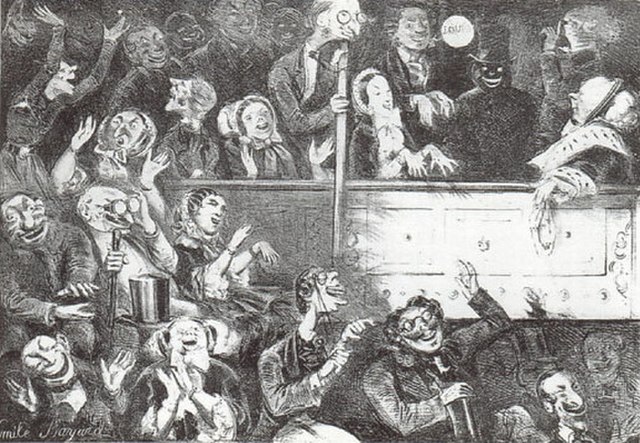Franz von Suppé, born Francesco Ezechiele Ermenegildo de Suppé was an Austrian composer of light operas and other theatre music. He came from the Kingdom of Dalmatia, Austro-Hungarian Empire. A composer and conductor of the Romantic period, he is notable for his four dozen operettas, including the first operetta to a German libretto. Some of them remain in the repertory, particularly in German-speaking countries, and he composed a substantial quantity of church music, but he is now chiefly known for his overtures, which remain popular in the concert hall and on record. Among the best-known are Poet and Peasant, Light Cavalry, Morning, Noon, and Night in Vienna and Pique Dame.
Suppé, 1846
Suppé's grave at the Zentralfriedhof, Vienna
Suppé (by Fritz Luckhardt [de])
Operetta is a form of theatre and a genre of light opera. It includes spoken dialogue, songs, and dances. It is lighter than opera in terms of its music, orchestral size, length of the work, and at face value, subject matter. Apart from its shorter length, the operetta is usually of a light and amusing character. It sometimes also includes satirical commentaries.
The audience at the Théâtre des Bouffes-Parisiens, the birthplace of Jacques Offenbach's operettas. Caricature of 1860 by Émile Bayard.
A Columbia Records advertisement for a recording of Rita Montaner in a production of Eliseo Grenet and Ernesto Lecuona's Niña Rita, o, La Habana en 1830, an operetta from the Spanish genre of zarzuela.
Cover page of Boccaccio, oder Der Prinz von Palermo (Boccaccio, or the Prince of Palermo) by Franz von Suppé in 1879. An example of early Viennese operetta.
Playbill for a revival of Orphée aux enfers



![Suppé (by Fritz Luckhardt [de])](https://upload.wikimedia.org/wikipedia/commons/thumb/f/f2/Franz_von_Supp%C3%A9_by_Fritz_Luckhardt.jpg/403px-Franz_von_Supp%C3%A9_by_Fritz_Luckhardt.jpg)



